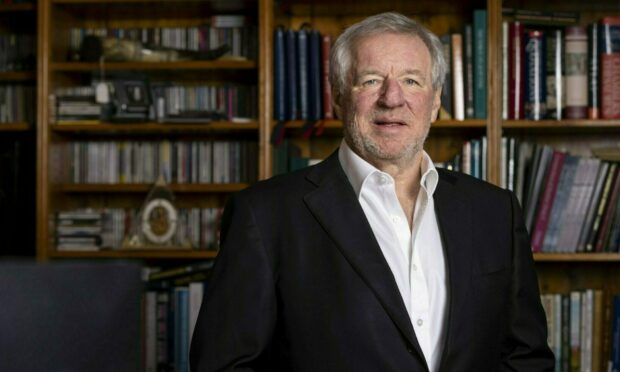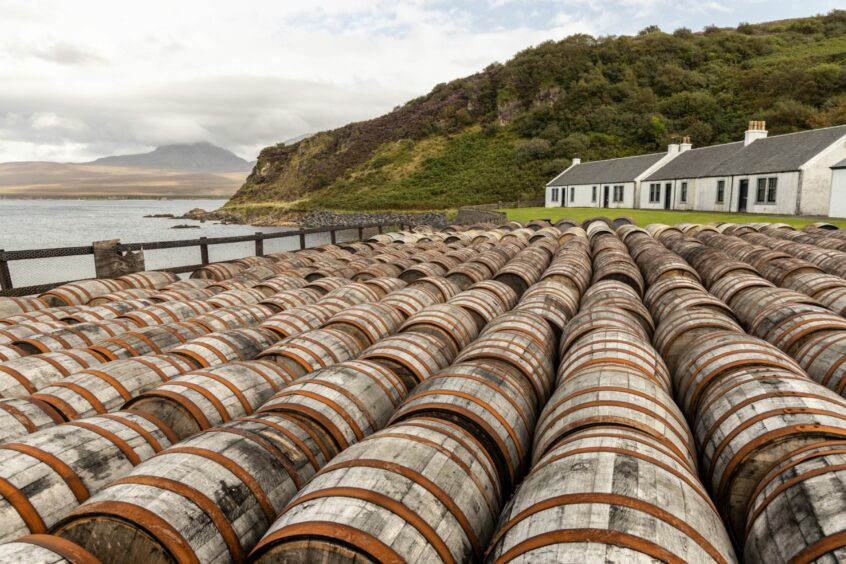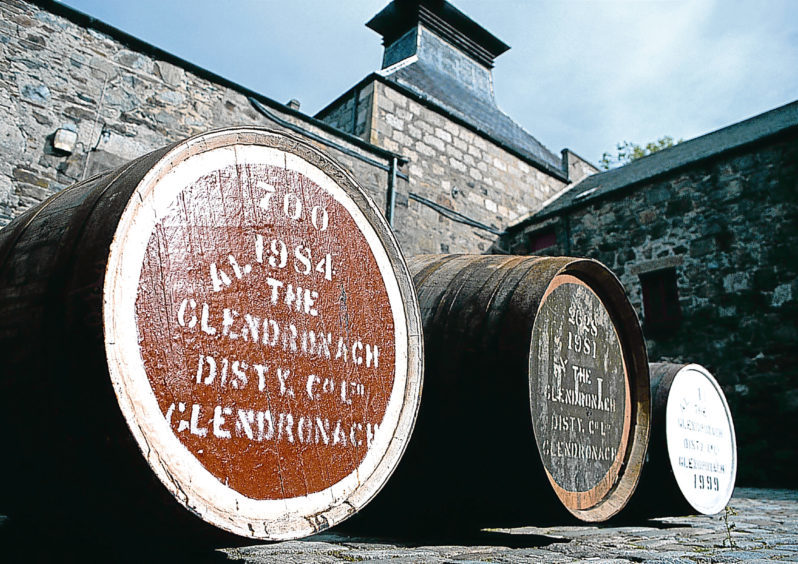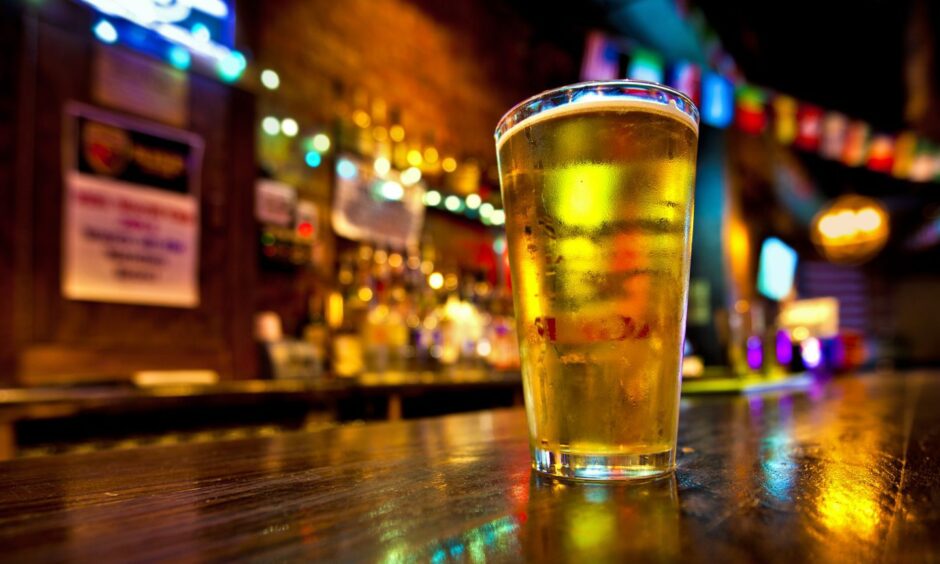With a decidedly gloomy economic outlook and no respite on the horizon, it may seem strange to be raising a glass for any other purpose than to drown our sorrows.
In the face of pandemic lockdowns, labour shortages, the cost-of-living crisis and war in Ukraine, positivity is in short measure.
For businesses, it is all the more important to identify opportunities in among the challenges – and innovation and diversification is key.
Across the UK, established businesses and start-ups have grown, launched new products, connected with consumers in new ways and invested in digital transformation, automation and decarbonising their operations.
The north-east food and drink industry accounts for more than 20% of total Scottish output, with annual turnover of £2.2 billion supporting more than 22,000 jobs.
That regional turnover total breaks down to 51% agriculture, 32% food manufacturing and 11% fishing, with the remaining 6% belonging to the burgeoning drink industry.
Whisky will always be central to the sector and, according to the Scotch Whisky Association, investment is now at its highest since the Second World War across our five producing regions – something borne out locally by the £30 million investment recently announced by Brown Forman, owner of The GlenDronach Distillery, near Huntly.
Craft beer continues to power on
The popularity of craft beer continues to grow and over the next five years industry revenue is expected to increase at a compound annual rate of 5.8% to reach £1.5bn.
Part of this success story are: Stonehaven’s Six Degrees North, which was honoured at the 2022 North East Scotland Food & Drink Awards; Fierce Beer, with bars in Aberdeen, Edinburgh and Manchester and plans for a new taproom at its brewery in Dyce, Aberdeen; and Peterhead’s Brew Toon which is looking to expand into Aberdeen.
In the face of pandemic lockdowns, labour shortages, the cost-of-living crisis and war in Ukraine, positivity is in short measure.”
The North East Scotland Food & Drink Awards – delivered in partnership by Opportunity North East (One) and Aberdeenshire Council – recognise businesses in the region for their sustainability, premium market development, and product and process innovation.
The sheer variety in these ideas will play their part in the drink industry’s ambition to grow turnover in the north-east by 5% a year, double output and exports by 2030, and increase productivity by 25% by 2025. This is based on the Scotland Food & Drink Ambition 2030 target of doubling industry turnover at national level.
Trend prediction is essential in meeting this target. During lockdown, UK sales of alcohol-free beer increased by 58% and pressure grew for healthy options.
Aberdeen firm Raw Culture is one of only six Scottish producers of kombucha, a sparkling tea-based soft drink.
Recent forecasts suggest the UK kombucha market will reach £126m by 2025.
Making cocktails at home during the pandemic was one way for many to try to shake things up and the trend has stuck.
Diageo has highlighted cocktails as key to an increase in its profits.
Soft drink group AG Barr reported a 13% increase in cocktail consumption outside the home, compared to before the pandemic.
The sale of cocktails for home consumption also increased 44% year-on-year.
Transition to low-carbon economy
But to take advantage of this trend, spirit suppliers need to maximise their routes to market.
Working in partnership with Scotland Food & Drink, One provides support for trend predictors and innovators to create products for today’s increasingly sophisticated markets.
It also provides support for businesses to develop new products and routes to market, adopt digital technology and advanced manufacturing, decarbonise, enhance their leadership skills and attract new talent.
This allows the sector to meet the demands of markets and consumers, and drive transformational change in the region as we transition to a low-carbon economy.
Sustainability demands innovation in production processes, packaging and distribution.
The Burn o’ Bennie Distillery in Banchory – which produces both whisky and rum – already uses an innovative distilling process that reduces heat, power and water requirements by 50%.
But there are also tensions facing the industry. Small craft brewers fear for survival in the face of the Scottish Government’s circular economy Deposit Return Scheme, whereby a 20p deposit is added to the cost of any single-use container and paid back on its return.
Expected to have been implemented last month, the scheme has been delayed by a year following demands for more time to prepare, with small craft brewers citing considerable additional costs of around £1.5m to implement it in the middle of tough economic conditions.
Drink industry showed ‘remarkable resilience’ during pandemic
On a national scale, the stoppage in CO2 production as a result of soaring energy costs is concerning, as is the future of publicans and bar owners whose energy bills are predicted to multiply by 500-600%.
BrewDog’s announcement it was closing six sites across the UK, including its Peterhead and Aberdeen bars, is a real blow.
It is important, however, to remember the drink industry showed remarkable resilience during the pandemic and I’m confident it will continue to do so.
These may be testing times but our drink sector is one that is indeed made of strong stuff.
Martin Gilbert is a co-founder and former chief executive of Aberdeen Asset Management.




Conversation